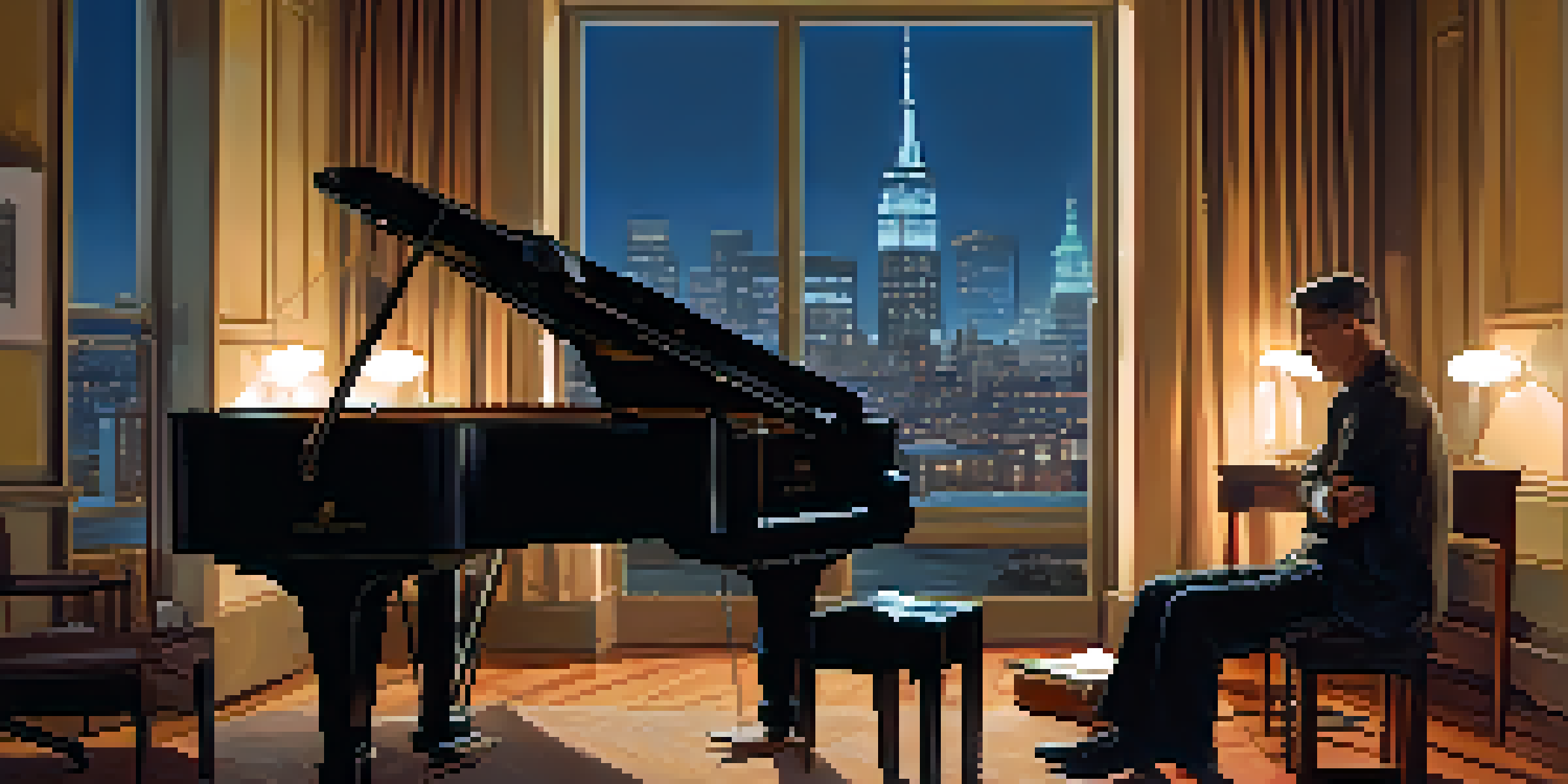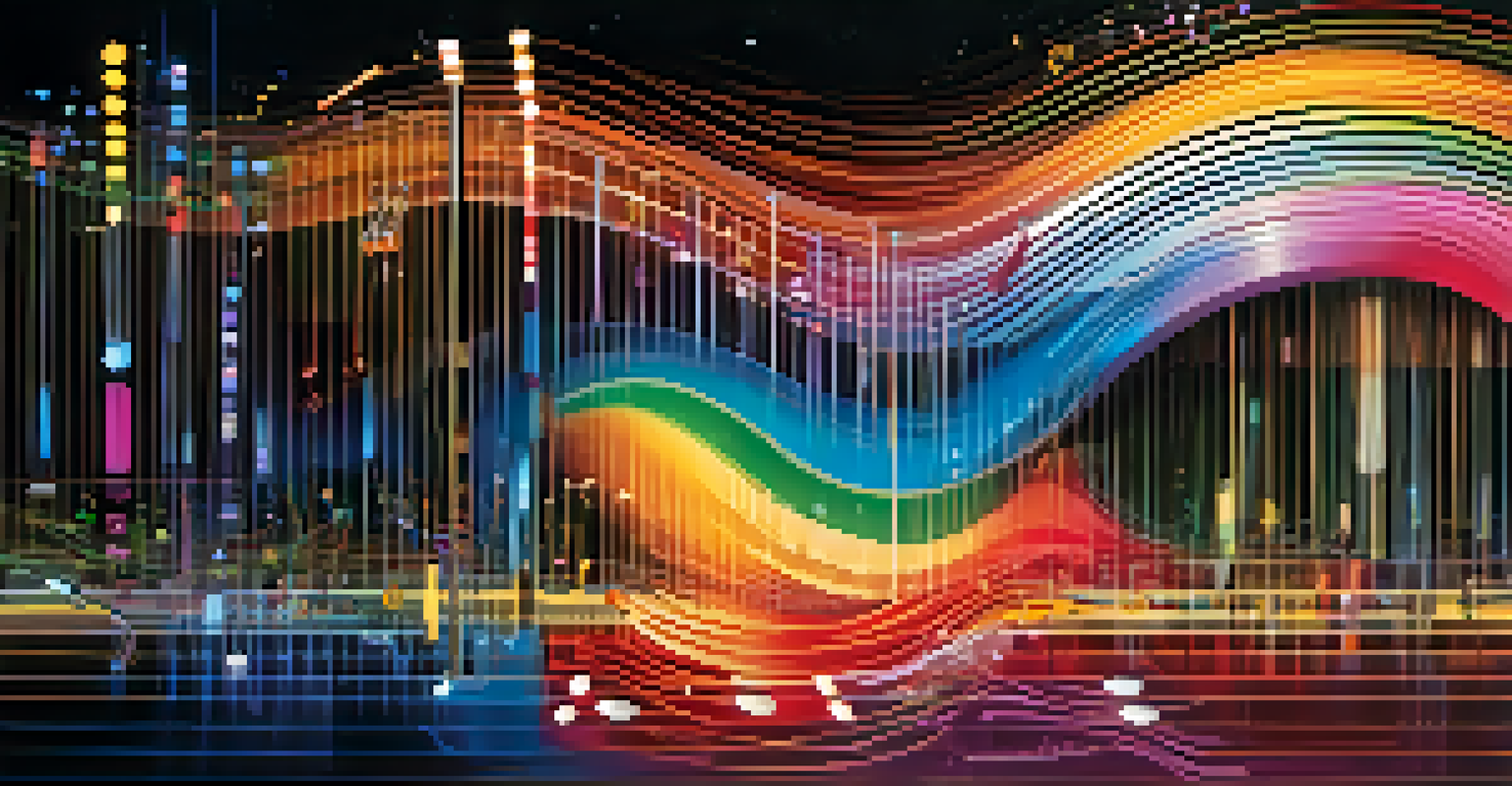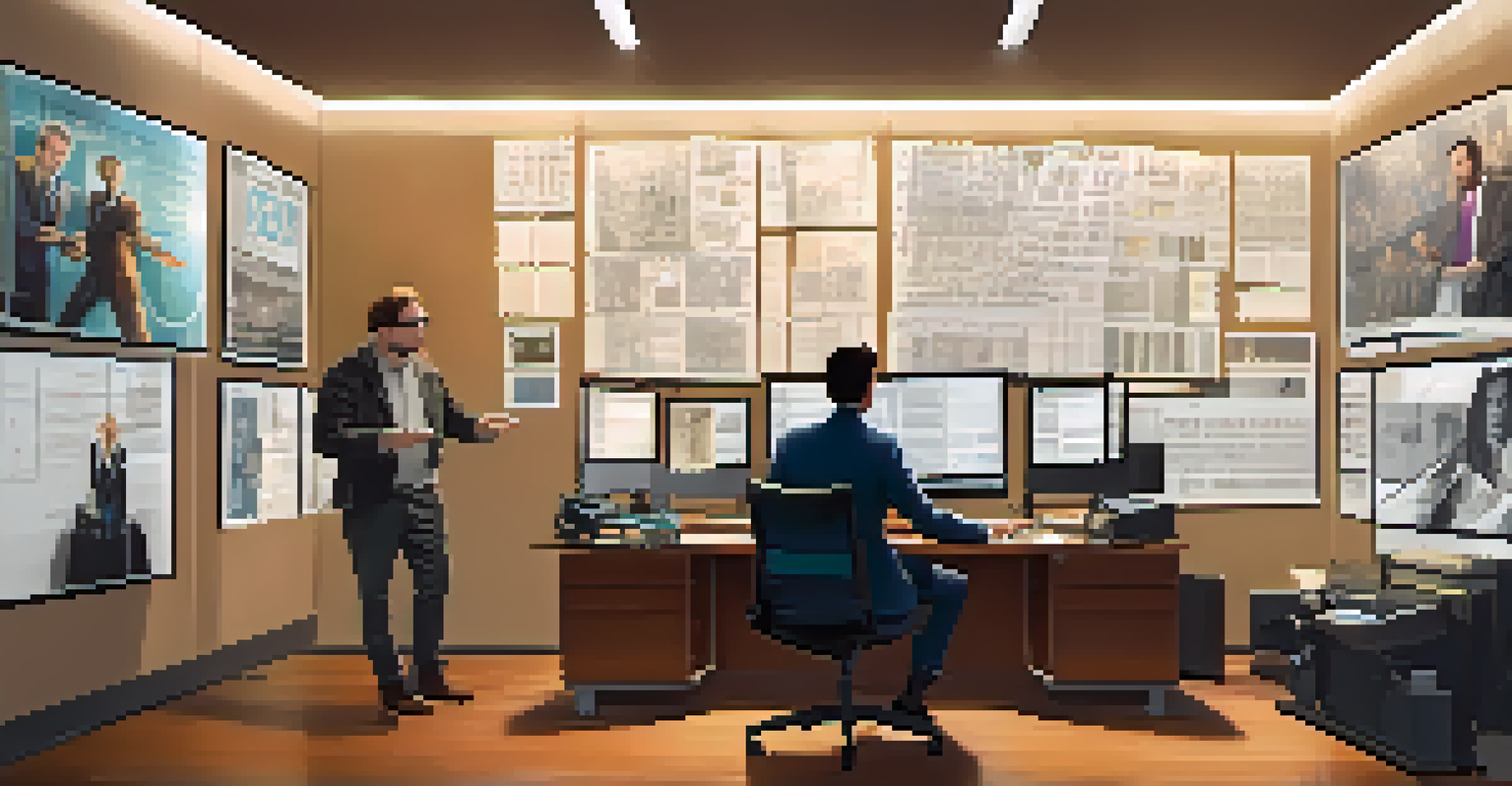Behind the Scenes: Composers' Secrets in Film Scoring

The Role of a Composer in Film Production
Film composers are the unsung heroes behind the emotional weight of a movie. They craft the musical backdrop that enhances storytelling, guiding audiences through the emotional landscape of the film. Without their work, many scenes would lack the depth and nuance that music provides.
Music can change the world because it can change people.
Composers work closely with directors to understand the vision and tone of the film. This collaboration ensures that the music aligns perfectly with the narrative, enhancing key moments and creating a cohesive viewing experience. It’s a delicate balance of interpretation and creativity.
In essence, a film composer is like a painter, using sound instead of colors to evoke feelings. Their ability to elicit emotions through music is what makes them pivotal in the filmmaking process.
The Creative Process: From Idea to Score
The journey from concept to finished score is often a complex one. Composers usually start with a deep analysis of the script, identifying themes and emotions that need musical representation. This initial brainstorming stage is crucial, as it lays the groundwork for the entire score.

Once the themes are established, composers often create rough sketches or demos. These early versions help them experiment with different sounds and arrangements, allowing for creative freedom before committing to a final piece. This iterative process is where the magic truly begins.
Composers Enhance Film Emotion
Film composers craft musical backdrops that significantly elevate the emotional depth and storytelling of a movie.
As the score develops, feedback from directors and producers plays a significant role. Composers must be open to making adjustments, ensuring that the final product not only resonates with their artistic vision but also aligns with the film’s overall narrative.
Instruments and Technology: The Composer's Toolbox
Today’s film composers have an array of tools at their disposal, blending traditional instruments with cutting-edge technology. From orchestral arrangements to digital synthesizers, the possibilities are nearly endless. This fusion allows composers to craft unique soundscapes that can transport audiences to different worlds.
Film scores are the unseen characters that guide the story.
Many composers also utilize software that simulates orchestral sounds, enabling them to create complex arrangements without the need for a full orchestra during the initial phases. This technology not only saves time but also allows for a more flexible creative process.
However, the human touch is irreplaceable. Many composers still prefer to record live instruments, believing that the warmth and emotion captured in a live performance can elevate the score to a new level. It’s this blend of old and new that makes film scores so captivating.
The Importance of Themes and Motifs in Film Scoring
Themes and motifs are fundamental to film scoring, acting as musical signatures for characters or ideas. These recurring musical phrases help reinforce the narrative and create a sense of familiarity for the audience. Think of how John Williams’ 'Imperial March' instantly evokes a feeling of villainy; that’s the power of a well-crafted motif.
Composers often develop themes that evolve throughout the film, reflecting character development or changes in the story. This dynamic approach adds layers to the narrative, making the viewing experience richer and more engaging. Each time a theme reappears, it can evoke specific emotions tied to the story.
Themes and Motifs Shape Narratives
Recurring musical themes and motifs serve as signatures that reinforce character development and enrich the audience's connection to the story.
By weaving these themes throughout the score, composers create a tapestry of sound that enhances the storytelling. It’s a brilliant way to deepen the connection between the audience and the characters, making the film memorable long after the credits roll.
Collaboration with Directors: A Symbiotic Relationship
Collaboration between composers and directors is essential for a successful film score. Directors often have a clear vision of how they want the music to complement the visuals, and composers must interpret that vision through sound. This back-and-forth dialogue is crucial in shaping the final score.
Sometimes, directors will play scenes for composers to inspire specific musical ideas. This direct approach allows composers to align their creativity with the director's intent, ensuring that the score enhances the emotional impact of the film. It’s a partnership built on mutual respect and artistic collaboration.
Ultimately, this symbiotic relationship can lead to iconic scores that define a film’s legacy. When both parties work seamlessly together, the result is a soundtrack that resonates with audiences and stands the test of time.
The Impact of Film Scores on Audience Perception
Film scores play a pivotal role in shaping how audiences perceive a story. The right music can heighten tension, evoke sadness, or amplify joy, guiding viewers’ emotional responses. For instance, a suspenseful score can make a seemingly mundane scene feel tense and thrilling.
Composers study psychology and human emotions to understand how music influences audience reactions. They carefully select instruments, tempos, and harmonies to evoke specific feelings, making the score an integral part of the storytelling process. This understanding of emotional cues is what separates great composers from the rest.
Collaboration is Key to Success
The partnership between composers and directors is crucial, ensuring that the music aligns with the film's vision and enhances its emotional impact.
Moreover, film scores often linger in our minds long after the credits roll. Iconic themes become intertwined with the films they represent, creating lasting memories that enhance our overall viewing experience. This powerful connection underscores the importance of a well-crafted score.
The Evolution of Film Scoring: Past to Present
Film scoring has evolved significantly over the decades, reflecting changes in technology, culture, and storytelling. Early film scores were often performed live, with musicians accompanying silent films, creating a unique atmosphere that set the tone for the visuals. As technology advanced, composers began to explore more complex arrangements and diverse genres.
The introduction of electronic music in the late 20th century revolutionized film scoring. Composers like Hans Zimmer embraced synthesizers, allowing for innovative soundscapes that were previously unimaginable. This shift opened new avenues for creativity, enabling composers to blend traditional orchestral elements with modern sounds.

Today, film scoring continues to evolve, with composers experimenting with various genres and techniques. The blending of different musical styles reflects the increasingly diverse narratives in film, making contemporary scores more dynamic and engaging than ever before.